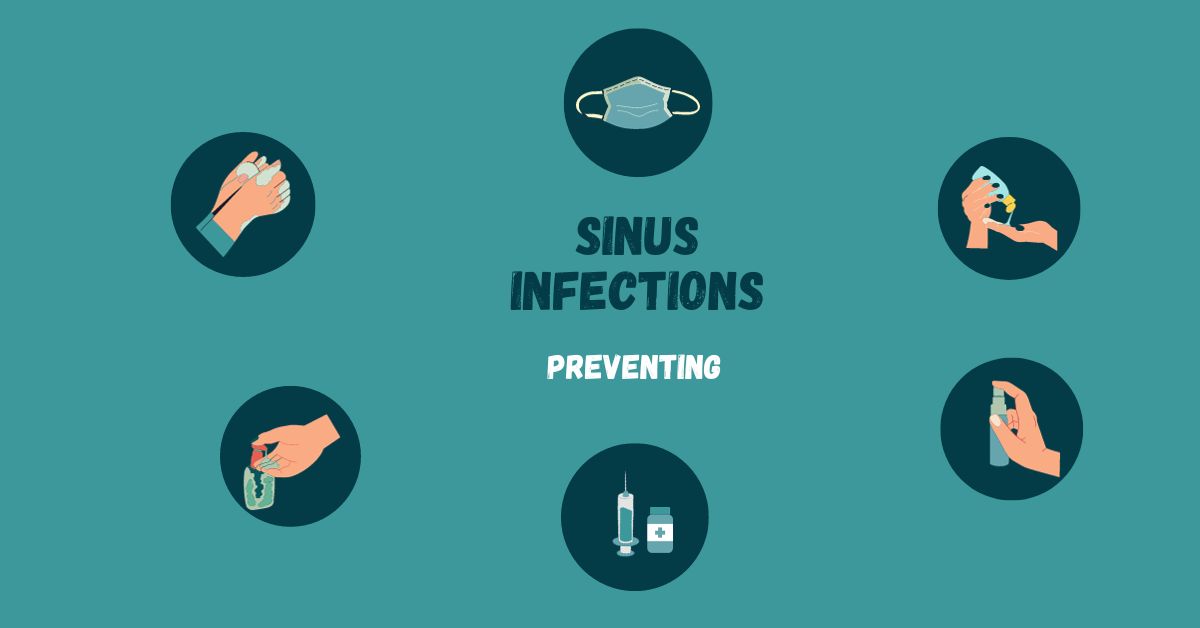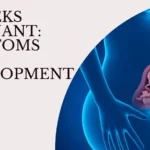Are Contagion Concerns: Sinus Infection Explained”
Are you experiencing nasal congestion, facial pressure, or discomfort in the head area? Wondering if these symptoms hint at something contagious? Understanding sinus infections and their contagious nature can provide clarity amidst the confusion.
Sinus infections, often known as sinusitis, can trigger a range of uncomfortable symptoms. But the question looms: are they contagious? In this comprehensive guide, we explore the contagious aspect of sinus infections while unraveling the complexities of this common ailment.
Delving into this subject will shed light on whether sinus infections can spread from person to person, easing concerns and providing actionable insights into managing these conditions effectively.
What are Sinus Infections Exactly?

Sinus infections happen when the areas around your nose get swollen and inflamed. These areas are called sinuses. They’re like small spaces in your head filled with air. When something irritates these spaces—like germs, allergies, or a blocked nose—it causes them to get swollen and filled with gooey stuff called mucus. This can make it hard for you to breathe through your nose and might make your face hurt.
You might feel a lot of pressure on your face, especially around your eyes and nose. It could make your headache and your nose feel stuffy or runny. Sometimes, when you have a cold, it might turn into a sinus infection because the mucus gets stuck in your sinuses, making them feel yucky.
Sometimes, these infections don’t last long, just a few weeks, but sometimes they stick around for much longer, even months. Some infections come from viruses like the ones that cause colds, and these can spread from person to person. But others are caused by bacteria, and those aren’t contagious.
If it’s bothering you or your face hurts a lot, it’s a good idea to see a doctor. They might give you something to help you feel better, like medicine or advice on how to clear up the yucky stuff in your nose. Taking care of your nose and listening to what your doctor says can help you feel better sooner.
Symptoms of Sinus Infections

Sinus infections can bring about various uncomfortable symptoms that affect the head and nasal area. These commonly include:
- Pain or Pressure: Feeling discomfort or a sensation of pressure in the forehead, between the eyes, around the nose, or in the upper jaw.
- Headache: Experience of head pain, which can range from mild to intense.
- Nasal Issues: Symptoms like a runny nose, congestion, or blockage, making breathing through the nose difficult.
- Loss of Smell: A reduced ability to detect scents due to congestion or inflammation in the nasal passages.
- Nasal Discharge: Thick, yellow, green, or cloudy mucus that may be expelled from the nose.
- Postnasal Drip: Dripping of mucus down the back of the throat, causing irritation or a sore throat.
- Cough: Sometimes caused by postnasal drip or irritation in the throat.
- Fatigue: Feeling tired or worn out, often due to the body’s immune response to the infection.
Duration and Progression of Sinus Infections
Duration of Viral vs. Bacterial Infections
Viral Sinus Infections:
- Usually lasts for a shorter duration, often developing after a cold.
- Typically, symptoms persist for about a week or two, with some cases lingering for up to three weeks.
- Symptoms might improve gradually as the body fights off the viral infection.
Bacterial Sinus Infections:
- Tend to last longer compared to viral infections.
- Symptoms can persist for 10 to 14 days, though some bacterial infections may linger for several weeks or even months.
- Without appropriate treatment, bacterial infections might not improve and can lead to prolonged discomfort.
Acute vs. Chronic Sinusitis: Symptoms and Timelines
Acute Sinusitis:
- Temporary inflammation of the sinuses, often following a cold or viral infection.
- Symptoms typically last for a shorter period, about 7 to 10 days on average.
- Sometimes, if caused by bacteria, acute sinusitis can extend beyond this timeline.
Chronic Sinusitis:
- Long-term inflammation of the sinuses that can recur or persist for an extended period, lasting 12 weeks or more.
- Symptoms of chronic sinusitis are persistent and may include recurring episodes of acute symptoms, such as nasal congestion, facial pain, or pressure.
- Chronic sinusitis might be related to underlying conditions like allergies, anatomical issues, or persistent infections that don’t resolve easily.
Differentiation and Progression:
- Acute sinus infections are commonly triggered by viral infections (e.g., colds) and tend to resolve within a few weeks.
- Bacterial infections, if causing acute sinusitis, might lead to prolonged symptoms beyond the typical viral infection duration.
- Chronic sinusitis involves persistent or recurring symptoms lasting for an extended period, sometimes requiring specialized treatment to manage the underlying causes effectively.
Diagnosis and Treatment Options
- Medical Evaluation: When diagnosing a sinus infection, the doctor initiates a conversation about your health, delving into the symptoms troubling you. This discussion helps them understand the duration, intensity, and nature of your discomfort. It’s crucial to share specific details such as the location of pain or pressure in your head, how long you’ve been feeling unwell, and whether your symptoms have improved or worsened over time.
- Nasal Endoscopy: A nasal endoscopy might sound complex, but it’s simply a way for doctors to examine the inside of your nose and sinuses using a small, flexible tube with a camera attached. This allows them to check for signs of inflammation, any blockages, or abnormal tissue growth that might be contributing to your symptoms. It’s a painless procedure conducted in the doctor’s office.
- Imaging Studies: In some cases, the doctor may request imaging tests like a CT scan or an MRI. These tests provide detailed pictures of your sinuses, offering a clearer view to identify structural issues, severe inflammation, or complications. These images help the doctor make a more accurate diagnosis and determine the best course of treatment.
- Nasal Cultures: If a bacterial infection is suspected, the doctor may collect a sample of nasal discharge for a culture test. This involves swabbing the inside of your nose to gather a small sample. The sample is then sent to a lab to identify the specific bacteria causing the infection. This helps determine if antibiotics are necessary and which ones might work best.
Diagnosing a sinus infection involves a combination of discussions about your symptoms, physical examinations, and sometimes additional tests. This comprehensive approach allows doctors to accurately identify the cause of your sinus troubles, leading to effective treatment.
Prevention and Self-care Measures.

Preventing sinus infections involves adopting certain habits and lifestyle changes to minimize exposure to triggers and maintain overall nasal health.
Avoiding Allergy Triggers: Allergies can exacerbate sinus issues. Identifying and avoiding triggers like pollen, dust mites, or pet dander can significantly reduce the likelihood of sinus problems. Consider using air purifiers or allergy-proof bedding to mitigate exposure.
Nasal Hygiene: Maintaining good nasal hygiene is vital. Use saline nasal sprays or rinses to keep nasal passages moist and clear from irritants or excess mucus. This simple practice helps reduce inflammation and washes away potential infection-causing agents.
Hydration and Humidification: Staying hydrated is key to thinning mucus and preventing it from becoming too thick and blocking the sinuses. Using a humidifier at home can also add moisture to the air, preventing dryness in the nasal passages, especially in dry climates or during winter months.
Lifestyle Adjustments: Certain lifestyle habits, like quitting smoking, can significantly reduce the risk of sinus infections. Smoking irritates nasal passages and increases vulnerability to infections. Adopting a balanced diet rich in fruits and vegetables boosts immunity, aiding in sinus health.
Hand Hygiene: Frequent handwashing helps prevent the spread of germs that can lead to sinus infections. Avoid touching your face, especially your nose and eyes, to minimize the transfer of germs from your hands.
Allergy Medications and Immunotherapy: For individuals prone to allergies, taking allergy medications as prescribed by a doctor can help manage symptoms, reducing the risk of sinus infections. Immunotherapy, such as allergy shots or tablets, can desensitize the body to allergens, decreasing allergy-related sinus problems.
Stress Management: Stress can weaken the immune system, making individuals more susceptible to infections. Engaging in stress-relieving activities such as yoga, meditation, or exercise can help bolster immunity and reduce the likelihood of sinus issues.
By adopting these preventive measures and incorporating self-care practices into your daily routine, you can significantly lower the risk of developing sinus infections and maintain healthier nasal passages.
Conclusion
Understanding and managing sinus infections are vital for maintaining nasal health. When it comes to these infections, recognizing the symptoms early is crucial. Symptoms like nasal congestion, facial pain, or headaches should prompt a visit to a healthcare professional for timely diagnosis and appropriate treatment.
Preventing sinus infections involves simple yet impactful measures. Practicing good nasal hygiene, steering clear of allergy triggers, staying hydrated, and maintaining proper hand hygiene significantly reduce the risk of sinus issues. Incorporating these self-care practices into daily routines empowers individuals to take charge of their sinus health.
Collaboration with healthcare providers is essential, especially for chronic or severe cases. Seeking guidance from doctors ensures tailored treatment plans, including medications, nasal sprays, or even surgical options if needed.

Meet Pradeep Singh, your go-to guide for all things fitness, health, and motivation. With over 7 years in the field, Pradeep brings a blend of expertise and real-world experience to his writing. From workout tips to healthy living insights, he simplifies complex topics, making fitness accessible for everyone. His authentic approach and genuine passion aim to inspire and support your wellness journey. Get ready to embark on a path to a healthier lifestyle with Pradeep as your trusted companion and motivator.






















